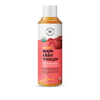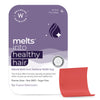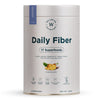When was the last time you received a free health tip and immediately began implementing it? We're all ears when it comes to free and easy health advice. But are these recommendations truly helpful? Is there any scientific evidence to back up these suggestions? What we should be doing instead is conducting intense research before implementing any of these tips. In this post, we will look at the most common health-related myths that are either false or only partially true. As we disprove some commonly held beliefs, we will also shed light on what is correct. Let's look at a few of these potentially unreliable health beliefs and learn the truth behind them.
1. Yolks are unhealthy.
When someone has high cholesterol, the first thing that comes to mind is to avoid eating egg yolks. Although egg yolks contain cholesterol (200 mg), this does not necessarily imply that eating egg yolks will result in high cholesterol levels. According to one study, eating one whole egg per day is not as dangerous as we believe. According to the study, the high cholesterol content of egg yolks does not significantly raise LDL (bad cholesterol).
While egg yolks should not be consumed by those who have high cholesterol, they are beneficial to those who are healthy. It contains fat-soluble vitamins such as A, K, and E, as well as folate, Omega 3, and iron. Furthermore, egg yolks are an excellent source of carotenoids (lutein and zeaxanthin), which are essential for maintaining the health of your eyes and brain. The benefits of including these carotenoids in your diet outweigh the risk of elevated LDL cholesterol levels.
If you’re adding eggs to your diet, ensure you limit the amount of cholesterol-rich foods you have in the rest of your meals. For example, have a salad, juice, and bread along with an egg instead of ham, and fries.
2. Sugar causes diabetes
Many adults are afraid of sugar because they believe it will cause diabetes. This fear stems from word of mouth and a plethora of sugar-free products that paint sugar in a negative light. Sugar consumption does not cause diabetes on its own. To better understand this, let's separate type 1 and type 2 diabetes.
TYPE 1:
When a person has type 1 diabetes, the pancreas stops producing insulin. Sugar is not to blame; rather, genetic factors and/or an autoimmune reaction in which your body attacks the beta cells in your pancreas that produce insulin are the culprits. This battle between your immune system and your own body can last months or years before you notice diabetes symptoms.
TYPE 2:
Insulin resistance, a condition in which the body does not utilize insulin properly, is typically the first sign of type 2 diabetes. Your body consequently requires extra insulin to facilitate glucose uptake into cells. To meet the increased demand, the pancreas initially produces more insulin, but over time it isn’t able to meet the demand, thus leading to high blood sugar levels.
The most common causes of type 2 diabetes are a family history of diabetes, obesity, a sedentary lifestyle, mental stress, and indulgence in unhealthy practices like frequent junk food intake, alcohol consumption, and smoking.
So, technically eating sugar doesn’t cause diabetes but sugar can increase your calorie intake which leads to obesity and further increase the risk of developing diabetes.
3. Fasting can lead to weight loss.
Alternate-day fasting, the Keto diet — the number of fasting methods is endless. But is fasting actually effective? Does it give long-term results?
Extreme fasting practices can certainly help you lose weight, but the harm they cause to your body is far greater. So, how did fasting become such a popular weight loss strategy? Everything is due to a process known as ketosis. Did that sound familiar? The term "Keto Diet" is derived from this.
Glucose and fats give you energy. In the absence of enough glucose molecules, your body gets energy from the stored fat in your body. When you are fasting, your body doesn’t get any glucose for energy. Once the stored glucose is used up it starts using the stored fat and this results in the formation of Ketones. Ketones provide energy for your body to carry out all necessary functions. Using or breaking down the fat reserves helps you lose weight. Utilizing fat instead of glucose to produce energy is called ketosis.
Pretty cool, right? So, let’s fast for a week and get that ideal figure, shall we? NO! Don’t!
Fasting for so long can damage your body, and it can also lead to fatigue. It is a short-term method to reduce your weight. Once you get back to a normal diet, you’ll suddenly gain a lot of weight. At times, people become bulkier than they were before fasting. Why does this happen? When your body has been working on its minimum energy reserves and is suddenly presented with a lot of food, it tries to store as many calories as it can to have enough energy to function.
So is fasting bad? It’s not even worth a chance? There’s a right way to do everything, even fasting.
- Don’t fast for more than 3 days in a row.
- Have a good share of fruits while fasting to avoid weakness and fatigue.
- Be gentle on your body. Don’t force yourself to do high-intensity workouts while fasting. You can do simple, low-calorie exercises like walking.
- You can also add ACV to your diet. Apple Cider Vinegar is widely used for weight loss and detox. Make sure you add ACV to a glass of water when consuming it. Having ACV directly can be harmful to your GI tract’s inner lining. Look for organic Apple Cider Vinegar online that contains "mother" to ensure you enjoy all the digestive and weight-loss benefits.
4. Honey and jaggery have fewer calories than sugar.
A lot of us choose to have tea without sugar. Instead, we add honey or jaggery, and we feel extremely proud of the healthy choice we made. Sorry to burst your bubble, but whether you use sugar, honey, or jaggery doesn’t make much of a difference.
Firstly, let us discuss the calorie densities:
Sugar - 390-400 Kilo calories/100 gram
Honey - 330-340 Kilo calories/100 gram
Jaggery - 380 Kilo calories/100 gram
It is pretty clear that there isn’t much difference. Sugar and jaggery have about the same calorie densities. Honey has slightly less flavor because of the water content. That is all there is to this big mystery.
Are honey and jaggery healthier?
Now we already know that in terms of calorie density, they are more or less the same. But when it comes to the additional nutrients that come with it, honey and jaggery are way better than sugar. Jaggery contains nutrients like protein, vitamin B12, B6, Iron, magnesium, calcium, and vitamin B12. Honey is a rich source of vitamins like ascorbic acid, niacin, and riboflavin and minerals like iron, copper, zinc, and potassium.
The conclusion is that honey and jaggery are considered healthier because of the extra vitamins and minerals that you get along with glucose, but they have more or less the same calorie content.
5. The best way to get abs is by doing crunches.
You can ask any person how to get those "6-pack abs", and in reply, you’ll only hear one thing: "crunches". 50 crunches a day. 100 crunches a day. The more the better. We have all heard these pieces of advice that aren’t supported by any scientific evidence. But here’s the truth.
Your core is made up of 4 muscles. The rectus abdominis in the middle make up your 6-pack abs, followed by a big layer of transverse abdominis, and finally, on either side of your 6-packs, you have external and internal obliques.
When you do crunches, you’re only working on the Rectus Abdominis and not the other parts of the core. This is precisely why crunches became famous for 6-pack abs. But crunches alone are not enough to build your 6-pack abs.
You should try including other exercises like planks and squats and focus on your diet as well. Include more protein and fiber in your diet. Before or after workouts, you should have a glass of protein shake to build stronger muscles and ensure speedy muscle recovery. Vegan Protein Powder is the latest trend. Plant-based vegan protein powder contains more fiber and has a lot of phytonutrients that you wouldn’t usually find in animal protein.
6. Fruit juices are healthier than whole fruits
Many people who want to change their eating habits begin by including fruit juice in their diet. There are many packed juices in supermarkets that claim to be natural and free of preservatives, but this could be a marketing ploy. Furthermore, some of these juices use fruit flavors rather than actual fruit juice. Did we mention the extra sugar that comes with it?
Store-bought juice is not as healthy as you think. So what about fresh, handmade juices? They are undoubtedly healthier than store-bought juice, but not as healthy as whole fruits. A report revealed that having one serving of packaged juice every day can increase the risk of developing diabetes by 21%. One glass of juice requires about 2 whole fruits, which implies more sugar intake than eating one whole fruit. Also, when we make juice, we filter out the fibers, depriving ourselves of the wonderful advantages of dietary fiber.
Dietary fiber helps you feel full, which helps with calorie restriction. Additionally, they prevent the spike in glucose levels that is caused by consuming fruit juices. In the presence of fiber, the sugar in fruits is released slowly over time instead of increasing sugar levels suddenly.
7. It is beneficial to leave the oil in your hair overnight.
When it comes to hair oiling, less is more. Leaving oil on your scalp all night will not make your hair stronger. It is a common misconception that storing masks, oils, face packs, and other topical products for an extended period of time increases the benefits they provide, but this is not always the case. Leaving oil on your scalp for 8–9 hours can cause damage from dust accumulation. Furthermore, it can irritate people with oily or sensitive skin.
So what is the right thing to do?
If you have an oily scalp and/or oily hair, you should avoid oiling your hair. Instead, you could try applying something more hydrating, like aloe vera gel.
While applying hair oil, if you can use warm oil, great! If not, that’s fine too. Warm oil helps facilitate blood circulation into the scalp, which makes the foundation of your hair stronger. Massage the oil nicely into your scalp. Don’t forget to apply oil to the ends. Now the big question is: how long should we keep the oil? Not more than 2 hours. 1-2 hours is more than sufficient. Additionally, you should start incorporating hair supplements into your daily routine. You cannot tap into the real cause with just the topical application of products. Oral supplementation can help you deal with the underlying cause and get lasting results.
8. Sunblock or sunscreen is only needed when the sun’s out.
We are all aware of the harmful effects of UVA and UVB rays. They can cause sunburn and skin cancer when exposed for long hours without any UV protection. An effect of sun rays that you probably don’t know about is aging and hyperpigmentation. When you are exposed to UV, you are allowing oxidative stress to increase, which causes hyperpigmentation. Increased oxidative stress can also cause cell damage and skin damage, such as inflammation and premature skin aging. Hence, applying sunscreen or sunblock is absolutely essential. But do you need sunscreen during the monsoon or winter, when the sun's rays are less intense?
The answer is yes. You need to use sunscreen 365 days a year.
What kind of sunscreen should you use?
Sunscreen with SPF 30 and above is the most effective. Additionally, you should look for a sunscreen with a broad spectrum. There are two types of UV rays: UVA and UVB. The former causes aging and the latter causes sunburns. We need protection from both. Broad-spectrum sunscreens protect from both UVA and UVB rays.
Is it necessary to reapply sunscreen every 2 hours?
You might not need to reapply sunscreen before leaving the house if you stayed indoors after applying it. But if you've been in the sun and have been perspiring, you might want to reapply sunscreen every few hours. This is because water or sweat can wash off the protective layer of sunscreen, so you need to reapply it now and then. Moreover, sunscreen's shielding power might be diminished by the sun's rays as well, which necessitates the reapplication of sunscreen.
9. Expensive creams can keep your skin looking young.
It is widely assumed that the most expensive items are the best. When it comes to skincare products, the price has little bearing. You can buy expensive creams, but if they are not suitable for your skin, they will not produce the desired results.
When it comes to skincare, buying products that are suitable for the skin is the best option. The price is not important.
Alternatively, you could have supplements that work internally to show incredible results on the outside. Dermatologists’ favorite skincare supplements are collagen peptides, which make your skin tighter and fight premature aging. The best collagen is considered to be the marine collagen extracted from Korean deep-sea fish. Everyone above the age of 20 should start having collagen supplements to ensure they have youthful skin for as long as possible.
10. Exercising one hour every day can counterbalance the impact of a sedentary lifestyle.
Most of us spend a lot of time sitting in an office chair, on a couch, or in our home office. A sedentary lifestyle is as hazardous as smoking. It can lead to obesity, heart disease, cancer, metabolic disorders, osteoporosis, and other harmful diseases.
If you think doing a high-intensity workout once a day can reverse the impact of a sedentary lifestyle, then you are highly mistaken. Studies have shown that such behavior is of little to no use. Instead, you should include some low-intensity exercises throughout the day, like stretching and walking every 30-40 minutes. Make an effort to get up frequently and do some movement.
Wrapping Up
We are willing to heed any guidance that seems sensible when it comes to our health. But we hardly ever attempt to conduct studies to establish what is true and what is false. We've done the legwork for you and listed 10 common health myths along with the truths behind them so you don't have to. The moral of the story is that we all need to do some quality research before blindly following anything.
References
https://www.hsph.harvard.edu/nutritionsource/food-features/eggs/
https://time.com/4225819/eggs-nutrition-egg-yolk/
https://www.niddk.nih.gov/health-information/diabetes/overview/symptoms-causes
https://www.goodrx.com/well-being/movement-exercise/do-crunches-give-you-abs






























 DOWNLOAD NOW
DOWNLOAD NOW
